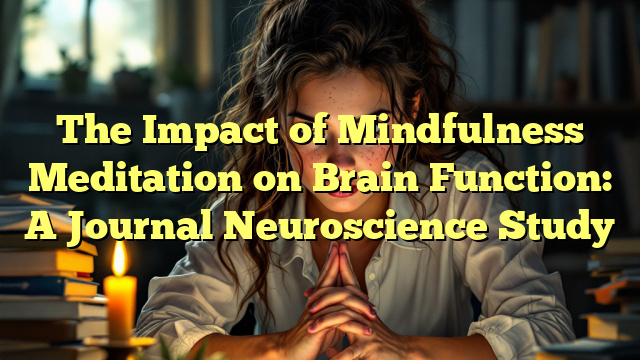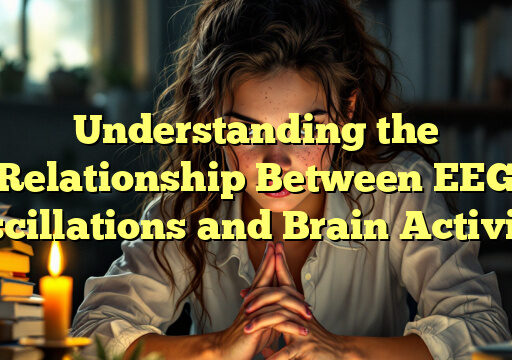Mindfulness meditation has gained significant attention in recent years for its potential benefits on
psychological and physical well-being. A study published in the Journal of Neuroscience explored the impact of
mindfulness meditation on brain function and found compelling evidence to support its positive effects.
The study involved participants who engaged in mindfulness meditation practices for a period of eight weeks. Using
advanced neuroimaging techniques, researchers observed changes in brain activity and structure before and after
the intervention. The results revealed significant improvements in several key areas of the brain associated with
cognitive function, emotion regulation, and stress management.
One of the most notable findings was the increase in gray matter density in the hippocampus, a region of the brain
critical for memory and learning. This suggests that mindfulness meditation may have the potential to enhance
cognitive abilities and mitigate age-related cognitive decline.
Furthermore, the study also highlighted changes in the amygdala, a key player in the brain's response to stress and
emotions. Participants who practiced mindfulness meditation demonstrated reduced activity in this region, leading
to improved emotional regulation and resilience in the face of challenges.
Overall, the findings of this study provide compelling evidence for the beneficial effects of mindfulness
meditation on brain function. By incorporating mindfulness practices into our daily routine, we may be able to
optimize our cognitive abilities, enhance emotional well-being, and build resilience to stress.
Conclusion
The impact of mindfulness meditation on brain function is a promising area of research that holds great potential
for improving our overall well-being. The findings of the Journal of Neuroscience study highlight the positive
effects of mindfulness meditation on cognitive function, emotion regulation, and stress management.
By engaging in regular mindfulness practices, we may be able to rewire our brains for greater resilience, enhanced
focus, and improved emotional well-being. The results of this study underscore the importance of incorporating
mindfulness meditation into our daily lives to unlock the full potential of our brain and optimize our mental
health.
FAQs
1. How long do I need to practice mindfulness meditation to see results?
While individual results may vary, research suggests that engaging in mindfulness meditation for as little as
ten minutes a day can lead to noticeable improvements in brain function and overall well-being. Consistency is key
to maximizing the benefits of mindfulness meditation.
2. Can anyone benefit from mindfulness meditation?
Yes, mindfulness meditation is accessible to people of all ages and backgrounds. Whether you are interested in
improving cognitive function, managing stress, or enhancing emotional well-being, mindfulness meditation can
offer a range of benefits for individuals from all walks of life.
3. Are there any potential side effects of mindfulness meditation?
While mindfulness meditation is generally safe for most people, some individuals may experience temporary
discomfort or emotional distress during meditation sessions. It is important to approach mindfulness meditation
with an open mind and seek guidance from a qualified instructor if you encounter any challenges.
4. How can I incorporate mindfulness meditation into my daily routine?
There are many ways to integrate mindfulness meditation into your daily life, such as setting aside time for
formal meditation practice, practicing mindfulness during everyday activities, and participating in mindfulness
programs or classes. Experiment with different approaches to find what works best for you.
5. Is mindfulness meditation a substitute for medical treatment?
While mindfulness meditation can be a valuable complement to traditional medical treatments, it is not intended
to replace professional medical advice or intervention. If you have any health concerns or conditions, consult
with a healthcare provider before beginning a mindfulness meditation practice.





